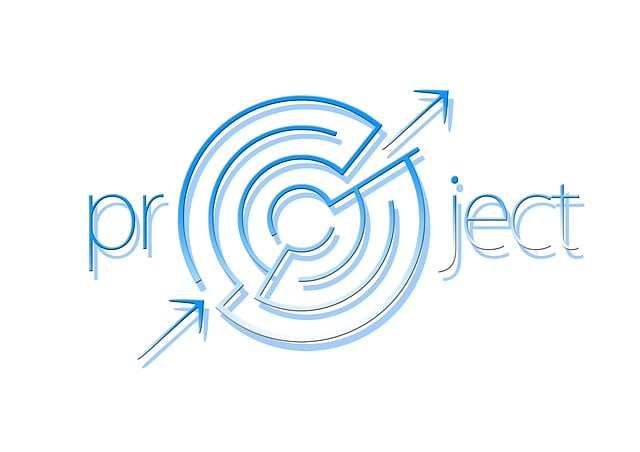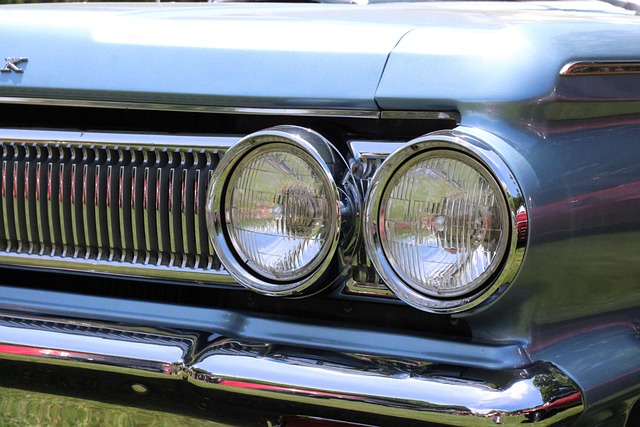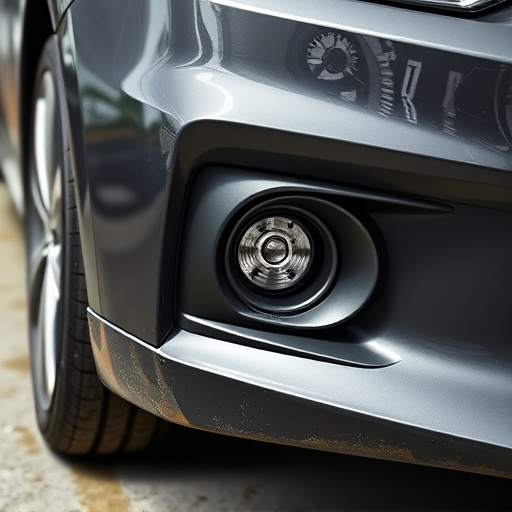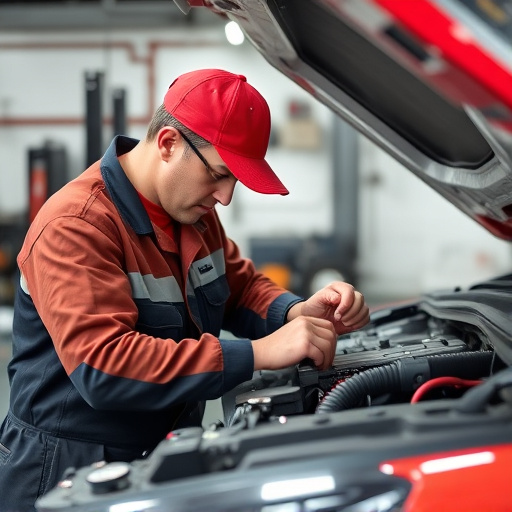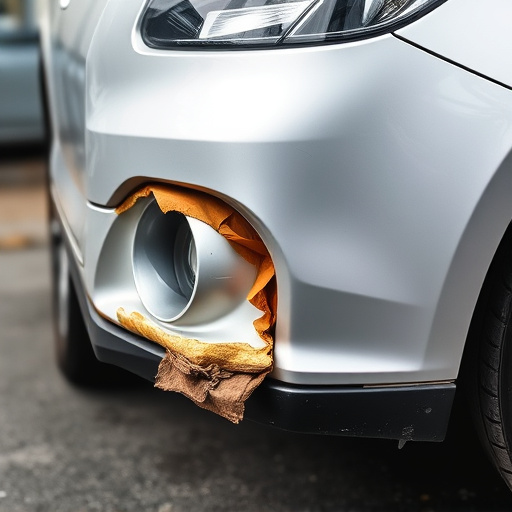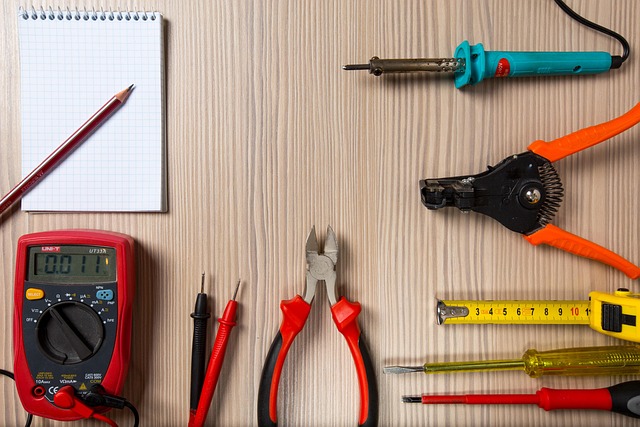Electrical system crash repair is a specialized automotive field focusing on modern vehicles' complex electronics after accidents. Skilled technicians use advanced tools for precise diagnosis and repair, prioritizing safety, reliability, ethical practices, environmental sustainability, and transparent communication. This eco-friendly approach reduces waste, enhances safety standards, and sets high industry integrity standards.
Electrical System Crash Repair is a specialized field that plays a pivotal role in promoting ethical repair practices. By understanding the intricacies of this process, we can ensure that vehicle repairs not only meet safety standards but also contribute to sustainability. This article delves into the significance of ethical practices in electrical system crash repair, highlighting its benefits for both environmental conservation and enhanced vehicle safety.
- Understanding Electrical System Crash Repair
- Ethical Practices: A Cornerstone of Repairs
- Benefits for Sustainability and Safety
Understanding Electrical System Crash Repair

Electrical system crash repair is a specialized field within the automotive industry, focusing on restoring and rebuilding complex electrical components after an accident or collision. This intricate process involves more than just straightening the frame (frame straightening) or conducting basic auto body work; it requires a deep understanding of modern vehicle systems, particularly their sophisticated electrical architectures. Today’s vehicles are increasingly reliant on advanced electronics, with power trains, braking systems, and infotainment modules all integrated into a complex network of sensors and wires.
In an auto repair shop, the challenge lies in accurately diagnosing and repairing these interconnected systems without introducing new flaws or malfunctions. Skilled technicians employ advanced diagnostic tools to identify issues within the electrical system crash repair, ensuring every component is thoroughly inspected and tested before replacement. This meticulous approach is crucial for maintaining the safety and reliability of vehicles, adhering to ethical repair practices that prioritize customer safety and environmental sustainability.
Ethical Practices: A Cornerstone of Repairs
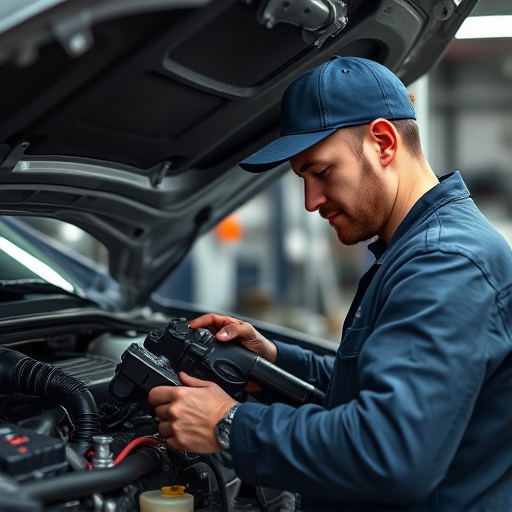
Ethical practices form the cornerstone of any reliable electrical system crash repair service. In a field where safety is paramount, especially for modern vehicles with intricate on-board electronics, adhering to ethical standards ensures that repairs are not only effective but also secure. This involves using genuine or approved replacement parts, adhering strictly to manufacturer guidelines, and employing certified technicians who stay updated with the latest technologies and safety protocols.
Beyond these, ethical repair practices encompass responsible disposal of old components, minimizing environmental impact during both repair and frame straightening processes, and transparent communication with clients about potential costs and timelines. These principles not only uphold the integrity of the collision center but also foster trust between the repair shop and its customers, setting a higher standard for the entire car body repair industry.
Benefits for Sustainability and Safety
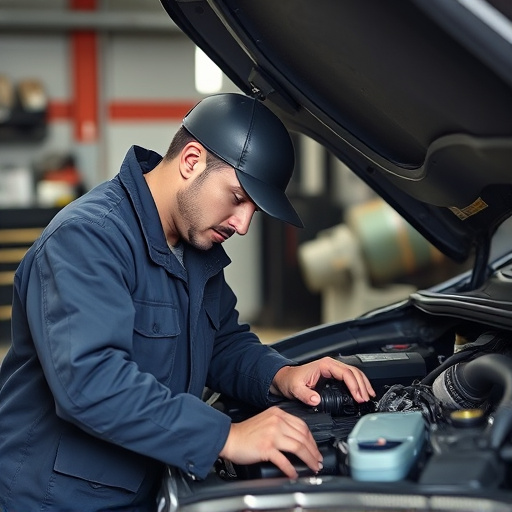
Electrical system crash repair plays a pivotal role in promoting sustainable and safe practices within the auto industry. By specializing in repairing rather than replacing damaged electrical components, collision repair shops significantly reduce waste and the environmental impact associated with new parts manufacturing. This eco-friendly approach aligns with global efforts to minimize automotive waste and conserve resources, ultimately contributing to a greener future.
Moreover, focusing on electrical system crash repair enhances safety standards in car bodywork. Skilled technicians meticulously inspect and restore electrical systems, ensuring optimal functionality and reliability. This meticulous attention to detail reduces the risk of post-repair issues, such as malfunctioning components or short circuits, which could compromise both passenger safety and vehicle performance. Such comprehensive repairs not only extend the lifespan of vehicles but also guarantee safer driving conditions for all.
Electrical system crash repair plays a pivotal role in promoting ethical repair practices, ensuring sustainability, and enhancing safety. By understanding the intricacies involved and adopting responsible approaches, repair professionals can contribute to a greener, more secure future. This specialized technique not only fixes vehicle damage but also minimizes electronic waste, reduces energy consumption during repairs, and promotes the safe recycling of components. Embracing these ethical practices is essential for the automotive industry’s evolution, fostering trust among consumers who increasingly value sustainability and responsible disposal methods.
